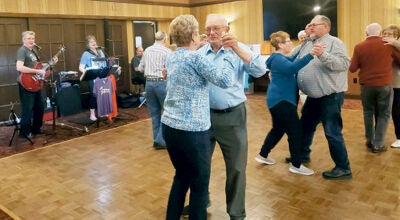Comments pose quandary
Published 9:57 am Friday, June 18, 2010
When newspaper publishers and editors get together, they inevitably find themselves discussing the comment section of their newspapers’ web sites. TV executives, bloggers and radio managers probably do the same.
One would think that with all the other changes and challenges in the news business, the simple act of allowing readers to post a comment at the end of an online story would be the smallest of problems.
Not so.
A big part of our job as the local newspaper is to provide a forum for community discussion. That was true when I started in this business almost 30 years ago and it is even more true today, because Americans lead increasingly isolated lives. There’s a lot less over-the-fence conversation going on than there was back in the 1960s, and a lot more sitting inside alone watching television. More and more, the way people communicate is on the phone, on-line but not face to face.
So there’s a real obligation to let people comment on the news, because it’s a way to have a community conversation.
Trouble comes when that conversation turns to name-calling, harrassment and downright abusive behavior. While we’d like to monitor all the comments on the Herald’s web site 24 hours a day so that we can remove those that are inappropriate, doing that just isn’t practical for us or for most any other news organization.
Publishers have tried many solutions. Some don’t allow comments. Some allow comments only on stories that seem unlikely to be controversial. Others require commenters to post under their real name. Some check every comment before it runs. A few rely on software to do the monitoring. Many, like the Herald, just do their best to keep an eye out for inappropriate comments and delete them as the need arises.
After wrestling with the comment situation for many years, I’ve about concluded that the crux of the matter lies in anonymity. Commenters who are free to say whatever they want under a “screen” identity will feel free to say pretty bad stuff. Commenters who have to put their own name, their real identity, behind their words generally won’t say anything.
One friend pointed out to me that there are often community issues that he comments on, but that he couldn’t do so under his real name. His boss would not like it because comments run the risk of offending customers. So my friend simply won’t post unless his comment is anonymous.
What I think will be a solution is sort of a middle ground: Commenters need to register with their real name, backed up by a phone number and valid e-mail address, but they may choose a screen name under which to post. That would provide anonymity, but still let the web site’s managers remove particularly offensive users.
And perhaps it might discourage just the sort of comments that tend to be most offensive.
A reader asked me about comments last week and I told him that there has to be a middle ground somewhere that will encourage debate but discourage abusive comments. And I’m confident we’ll find that middle ground, perhaps with the system outlined above.
Feel free to comment.




